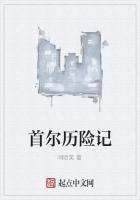"Good God!" cried the other, "I'm not blaming you! I'd be proud of the chance to do as much. I asked because I'd like to go away thinking she's content, thinking she's happy with him.""Doesn't it look as though she were?" Harris protested. "She's followed him--followed him half around the globe. If she'd been happier away from him, she'd have stayed away from him."So intent had been the men upon their talk that neither had noted the passing of the minutes or, what at other times was an event of moment, that the mail steamer had distributed her mail and passengers; and when a servant entered bearing lamps, and from the office the consul's clerk appeared with a bundle of letters from the Eitel, both were taken by surprise.
"So late?" exclaimed Hemingway. "I must go. If I'm to sail with the Eitel at daybreak, I've little time!"But he did not go.
As he advanced toward Harris with his hand outstretched in adieu, the face of the consul halted him. With the letters, the clerk had placed upon the table a visiting-card, and as it lay in the circle of light from the lamp the consul, as though it were alive and menacing, stared at it in fascination. Moving stiffly, he turned it so that Hemingway could see. On it Hemingway read, "George S. Sheyer," and, on a lower line, "Representing William L. Pinkerton."To the woman he loved the calamity they dreaded had come, and Hemingway, with a groan of dismay, exclaimed aloud:
"It is the end!"
From the darkness of the outer office a man stepped softly into the circle of the lamp. They could see his figure only from the waist down; the rest of him was blurred in shadows.
"'It is the end'?" he repeated inquiringly. He spoke the phrase with peculiar emphasis, as though to impress it upon the memory of the two others. His voice was cool, alert, authoritative. "The end of what?" he demanded sharply.
The question was most difficult. In the silence the detective moved into the light. He was tall and strongly built, his face was shrewd and intelligent. He might have been a prosperous man of business.
"Which of you is the consul?" he asked. But he did not take his eyes from Hemingway.
"I am the consul," said Harris. But still the detective did not turn from Hemingway.
"Why," he asked, "did this gentleman, when he read my card, say, 'It is the end'? The end of what? Has anything been going on here that came to an end when he saw my card?"Disconcerted, in deep embarrassment, Harris struggled for a word.
But his distress was not observed by the detective. His eyes, suspicious and accusing, still were fixed upon Hemingway, and under their scrutiny Harris saw his friend slowly retreat, slowly crumple up into a chair, slowly raise his hands to cover his face. As though in a nightmare, he heard him saying savagely:
"It is the end of two years of hell, it is the end of two years of fear and agony! Now I shall have peace. Now I shall sleep!
I thank God you've come! I thank God I can go back!"Harris broke the spell by leaping to his feet. He sprang between the two men.
"What does this mean?" he commanded.
Hemingway raised his eyes and surveyed him steadily.
"It means," he said, "that I have deceived you, Harris--that I am the man you told me of, I am the man they want." He turned to the officer.
"I fooled him for four months," he said. "I couldn't fool you for five minutes."The eyes of the detective danced with sudden excitement, joy, and triumph. He shot an eager glance from Hemingway to the consul.
"This man," he demanded; "who is he?"
With an impatient gesture Hemingway signified Harris.
"He doesn't know who I am," he said. "He knows me as Hemingway.
I am Henry Brownell, of Waltham, Mass." Again his face sank into the palms of his hands. "And I'm tired--tired," he moaned. "I am sick of not knowing, sick of running away. I give myself up."The detective breathed a sigh of relief that seemed to issue from his soul.
"My God," he sighed, "you've given me a long chase! I've had eleven months of you, and I'm as sick of this as you are." He recovered himself sharply. As though reciting an incantation, he addressed Hemingway in crisp, emotionless notes.
"Henry Brownell," he chanted, "I arrest you in the name of the commonwealth of Massachusetts for the robbery, on October the eleventh, nineteen hundred and nine, of the Waltham Title and Trust Company. I understand," he added, "you waive extradition and return with me of your own free will?"With his face still in his hands, Hemingway murmured assent. The detective stepped briskly and uninvited to the table and seated himself.
He was beaming with triumph, with pleasurable excitement.
"I want to send a message home, Mr. Consul," he said. "May I use your cable blanks?"Harris was still standing in the centre of the room looking down upon the bowed head and shoulders of Hemingway. Since, in amazement, he had sprung toward him, he had not spoken. And he was still silent.
Inside the skull of Wilbur Harris, of Iowa, U. S. A., American consul to Zanzibar, East Africa, there was going forward a mighty struggle that was not fit to put into words. For Harris and his conscience had met and were at odds. One way or the other the fight must be settled at once, and whatever he decided must be for all time. This he understood, and as his sympathies and conscience struggled for the mastery the pen of the detective, scratching at racing speed across the paper, warned him that only a few seconds were left him in which to protest or else to forever after hold his peace.















